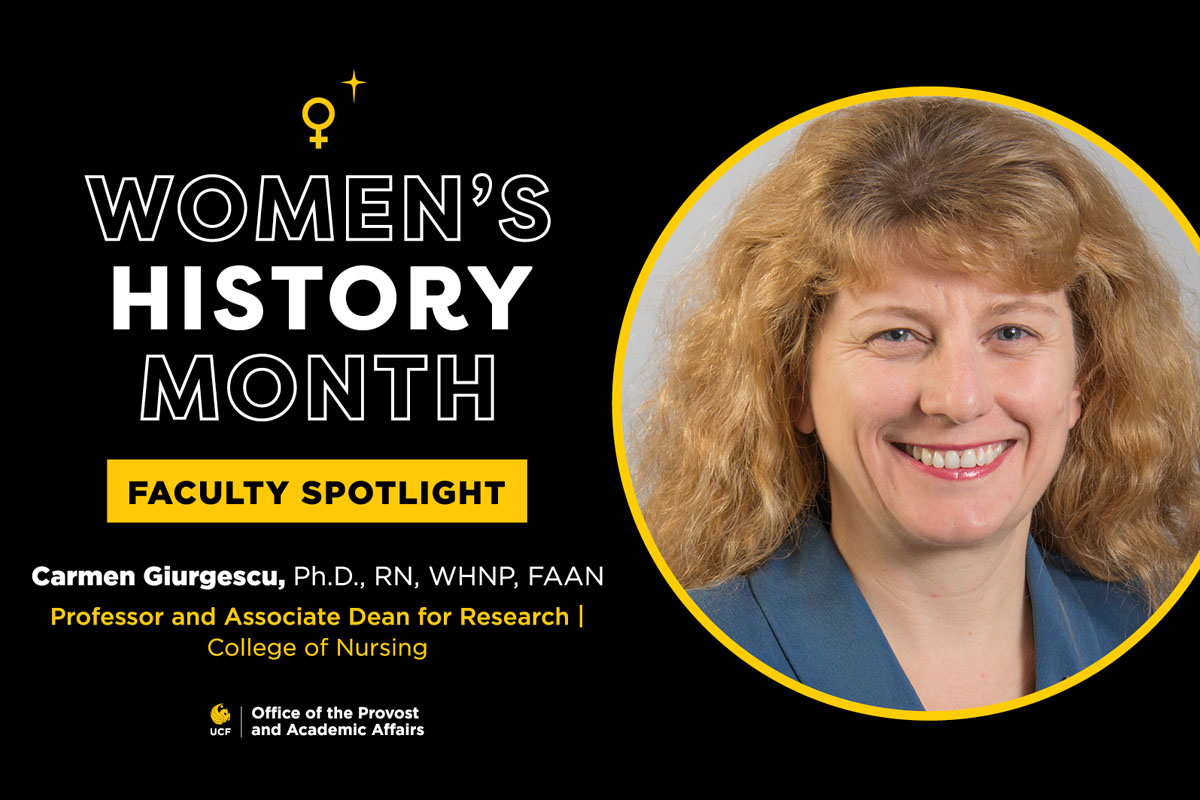With over 15 years as a registered nurse and nurse practitioner in labor and delivery and women’s health care, Dr. Carmen Giurgescu has placed her focus on the inequalities African American women face with their health. As part of Women’s History Month, the Office of the Provost and Academic Affairs asked Dr. Giurgescu about the driving factors and goals for her research on preterm birth among African American women.
What was the driving force behind your passion to research this subject?
My research has been focusing on the impact of racial discrimination and neighborhood disorder and crime on maternal mental health and preterm birth among African American women. In my early research, I found that pregnant African American women report disadvantaged neighborhoods and racial discrimination as risk factors for preterm birth. There are pervasive health disparities in birth outcomes for African American women. African American women are 50% more likely to experience preterm birth (< 37 completed weeks gestation) compared with White women. Higher incidence of preterm birth among African American women has been attributed to social determinants of health. They are also more likely to experience racial discrimination and live-in neighborhoods with higher disorder and crime compared with White women. Building on these findings, I am conducting ground-breaking research to explore biological mechanisms by which social determinants of health increase risk for preterm birth. I am the principal investigator of two NIH R01 studies that examine the maternal and paternal factors (e.g., racial discrimination, depressive symptoms) on preterm birth among African American families.
Have you seen an improvement on the subject since your research began?
My research has progressed from drawing attention to the roles of social stressors, particularly neighborhood disorder (e.g., vacant housing) and experiences of racial discrimination, as an early-stage researcher to elucidating the complex and interacting psychological and biological pathways by which social determinants of health increase risk for preterm birth for African American women. By identifying bio-psycho-social factors that contribute to preterm birth in African American women, my research has implications for interventions at multiple levels ranging from policies around economic development of disadvantaged neighborhoods to patient-provider interactions in the clinic to personalized therapies.

Recent studies have been focusing on structural racism as a driver of this disparity. Although researchers have examined risk factors for preterm birth for decades, African American women still have higher rates of preterm birth compared with Whites. Racism, not race itself, is the driving force behind disparately high rates of preterm birth among African American women.
How do you think your work will change the outcome of the lives you want to impact?
Understanding the role of social determinants of health on mental health and preterm birth will provide the foundation for designing interventions to reduce disparities in preterm birth among African American families. Social determinants of health may increase the risk of negative mental health and birth outcomes for African American women in the United States. Improving the conditions in which families live will improve the health of the next generation.
What new/interesting things have you discovered?
My team and I found that psychological stress and biomarkers of stress are potential pathways by which social determinants of health increase risk for preterm birth among African American women.
Is there any work you would like to highlight or a quote you’d like to leave us with?
I am expanding my research to include expectant fathers. In one of my NIH R01 studies, we examine the influences of paternal social determinants of health, psychological factors and salivary telomeres on preterm birth among African American women. This is the first study to comprehensively consider paternal factors to identify issues that may be most relevant for African American families.


